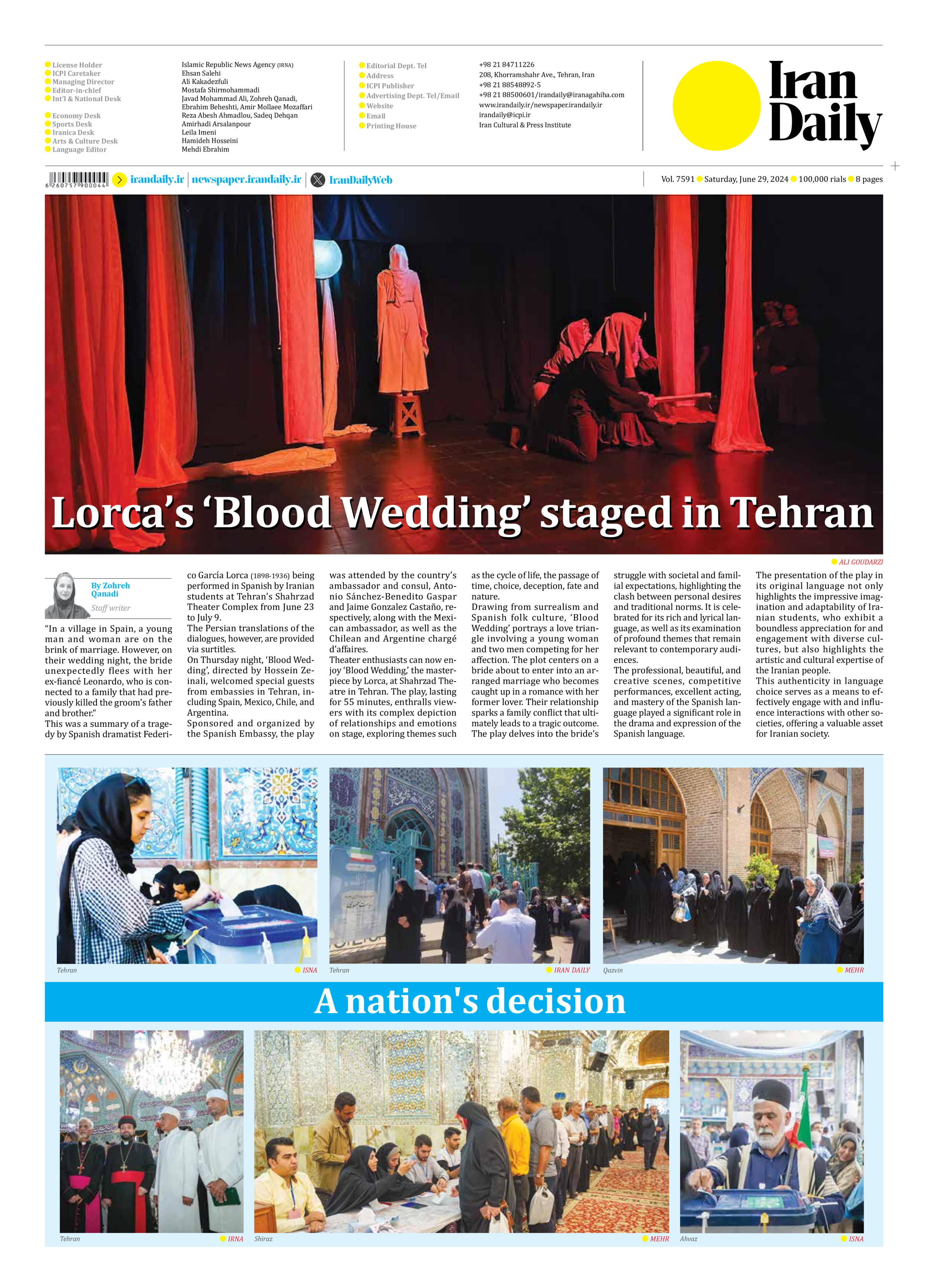
Lorca’s ‘Blood Wedding’ staged in Tehran
By Zohreh Qanadi
Staff writer
“In a village in Spain, a young man and woman are on the brink of marriage. However, on their wedding night, the bride unexpectedly flees with her ex-fiancé Leonardo, who is connected to a family that had previously killed the groom’s father and brother.”
This was a summary of a tragedy by Spanish dramatist Federico García Lorca (1898-1936) being performed in Spanish by Iranian students at Tehran’s Shahrzad Theater Complex from June 23 to July 9.
The Persian translations of the dialogues, however, are provided via surtitles.
On Thursday night, ‘Blood Wedding’, directed by Hossein Zeinali, welcomed special guests from embassies in Tehran, including Spain, Mexico, Chile, and Argentina.
Sponsored and organized by the Spanish Embassy, the play was attended by the country’s ambassador and consul, Antonio Sánchez-Benedito Gaspar and Jaime Gonzalez Castaño, respectively, along with the Mexican ambassador, as well as the Chilean and Argentine chargé d’affaires.
Theater enthusiasts can now enjoy ‘Blood Wedding,’ the masterpiece by Lorca, at Shahrzad Theatre in Tehran. The play, lasting for 55 minutes, enthralls viewers with its complex depiction of relationships and emotions on stage, exploring themes such as the cycle of life, the passage of time, choice, deception, fate and nature.
Drawing from surrealism and Spanish folk culture, ‘Blood Wedding’ portrays a love triangle involving a young woman and two men competing for her affection. The plot centers on a bride about to enter into an arranged marriage who becomes caught up in a romance with her former lover. Their relationship sparks a family conflict that ultimately leads to a tragic outcome.
The play delves into the bride’s struggle with societal and familial expectations, highlighting the clash between personal desires and traditional norms. It is celebrated for its rich and lyrical language, as well as its examination of profound themes that remain relevant to contemporary audiences.
The professional, beautiful, and creative scenes, competitive performances, excellent acting, and mastery of the Spanish language played a significant role in the drama and expression of the Spanish language.
The presentation of the play in its original language not only highlights the impressive imagination and adaptability of Iranian students, who exhibit a boundless appreciation for and engagement with diverse cultures, but also highlights the artistic and cultural expertise of the Iranian people.
This authenticity in language choice serves as a means to effectively engage with and influence interactions with other societies, offering a valuable asset for Iranian society.







